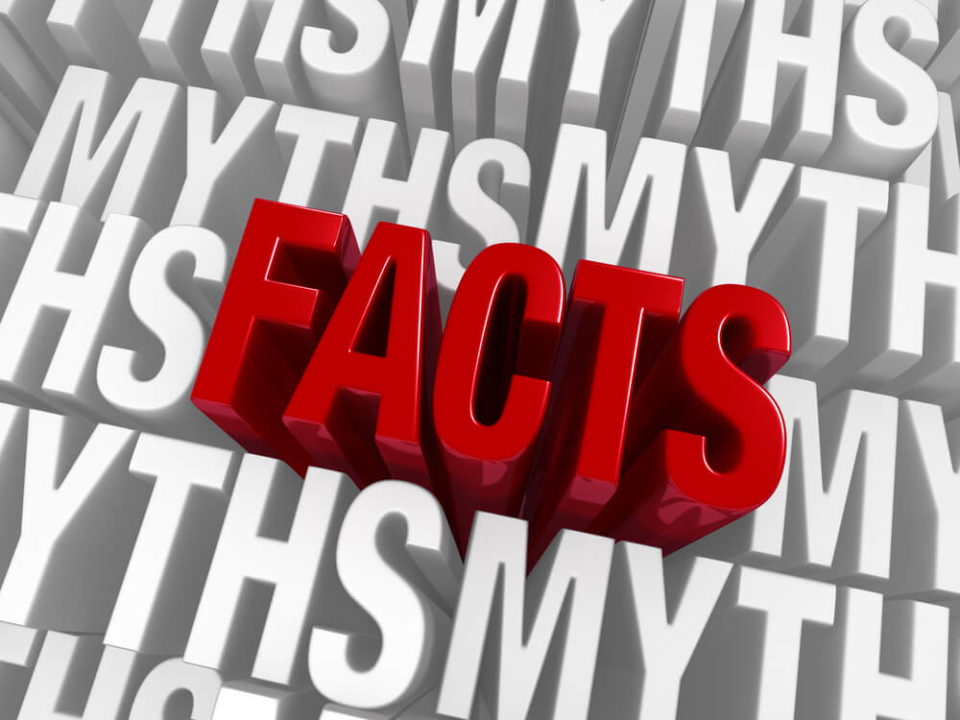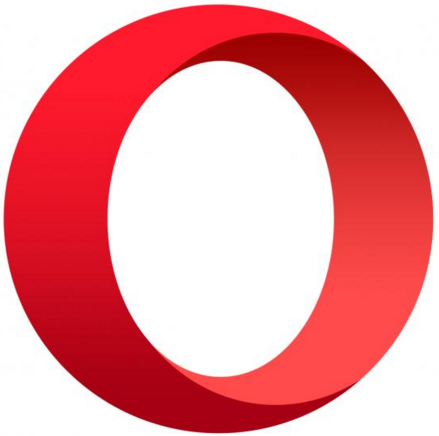
Learning the facts of online privacy, online security, and anonymity online is important. There’s a lot of marketing speak out there, and you deserve to know the truth behind the spin. How much privacy do you get from a VPN? Plenty. Do you get everything that every VPN claims on the sales pages? Let’s look at that now…
Online privacy from a VPN: Myths vs. Facts
I’m completely anonymous when using a VPN
Being anonymous means that you can never be identified or named in any way. By this definition, you are not 100% completely anonymous when connected to a VPN. Not even Tor or Bitcoin can promise you that.
Each of these services will have one piece of information about you which, if the authorities dig hard enough, can trace back to you in some way. There are ways to make Bitcoin more private, and a VPN certainly gives you more privacy depending on which one you choose, but there is no 100% anonymity …anywhere.
To look at a VPN’s ability to make you anonymous think of this:
- You get home at night and turn on your lights. Everyone walking by can look in and see exactly what you’re doing. Picking your nose? Ew. We saw that.
- You get home at and night and turn on your lights. Then you go to your window and close thick curtains that block the light. People can see your home, they likely saw that you went inside, but they can’t see you picking your nose. (Still ew.)
The second example is what a VPN does. Companies, like your own ISP, can see that you’re connected to the Internet, but not what you’re doing.
I have to be completely anonymous to be private
You can use VPNs, proxies, private browsing, and encrypted messaging clients like Whatsapp to increase your privacy. They protect your against mass data collection which can be stolen by hackers, collected by corporations, or spied on by the government. There’s no question about that, it’s precisely what they do.
Getting this privacy is highly recommended. Don’t take my word for it either: Hear it directly from a man who knows a thing or two about mass surveillance, online privacy, and what encryption can do to counteract these issues:
Google's decision to disable end-to-end encryption by default in its new #Allo chat app is dangerous, and makes it unsafe. Avoid it for now.
— Edward Snowden (@Snowden) May 19, 2016
Tech companies: use this time to enable end-to-end encryption everywhere. Your future depends on making pervasive crypto a fait accompli.
— Edward Snowden (@Snowden) May 27, 2016
Encryption save lives: When emergency network failed during #BrusselsAttack, police/medics shifted to @WhatsApp. https://t.co/AK4riLKa7U
— Edward Snowden (@Snowden) March 26, 2016
In the examples above Edward:
- Recommends not using Google’s chat app after it killed encryption.
- Urges all tech companies to start including encryption as a safeguard.
- Shows how the encryption on Whatsapp works since emergency personnel trusted it.
This type of privacy is valuable, and it works when it comes from a VPN.
My VPN provider says they’re anonymous, so…
Many VPN providers make claims about anonymity on their sales or marketing page. Failing to read their privacy policy, however, is a mistake. Many have fine print which more accurately reflects what they do and do not log. We cover this for all of our providers in our Top 10 VPN providers list so that you don’t have to dig through it.
This happens for a number of reasons, the biggest being that not every VPN is intended for the same use. A VPN can log and still be quite useful:
- To someone looking to unblock some websites in the USA, or anywhere else, they want to see.
- For someone looking to transmit documents.
- For some looking to get past a work or school geoblock.
A VPN that logs isn’t a bad VPN, it is just meant for a different audience. You need to be sure you read the fine print, or our reviews, to be sure you’re getting the right VPN for your needs.
Any amount of logging is bad
Let’s face some facts here: Some people who chose to use a VPN do so for illegal, or at least dishonourable, intentions. Someone signs up for a VPN because they want to see last night’s episode of Peaky Blinders on the BBC iPlayer. Cool. Choose a VPN server in the UK and it’ll work, enjoy the show.
But another person signs up for a VPN because they want to launch a DDoS attack against the BBC because they think Peaky Blinders is a terrible show which must be stopped. Some basic logging, which can be deleted immediately by the VPN, will catch these abusers. This is the type of logging which is acceptable on any VPN. Without it your experience would be that of slow servers which can’t let you watch Peaky Blinders as DDoS attacks take up all the bandwidth.
Basically, the minimal amount of logging from a VPN will:
- Help offer better speeds.
- Allow the VPN to track hangups in their service so they can fix them.
- Troubleshoot connection issues.
- Protect you, and everyone else on the Internet, from criminals who launch DDoS attacks and other computer spam.
- Terminate the connection of criminals so that VPNs remain respected tools for privacy, minimizing their being blocked.
A little bit of logging, followed by proper care of that data (which includes deleting it), can be an important part of what makes a VPN function.
Free services are just as good
Lollllzzz. Hahahaha. Stop, stop. Hold on. Let me catch my breath. Anyone who thinks this, seriously, why haven’t you learned your lesson yet?
If it’s free online, you’re the product.
Free ‘privacy’ tools are little more than spying tools which protect your privacy from other corporations trying to spy on you.
Here are some examples of those services:
- Opera VPN:
 This is Google Chrome’s ‘free’ VPN. Who do you think is collecting all the data from that? Google! The biggest data collector and violator of privacy on the entire Internet!
This is Google Chrome’s ‘free’ VPN. Who do you think is collecting all the data from that? Google! The biggest data collector and violator of privacy on the entire Internet! - Hola: This is Facebook’s ‘free’ VPN. Who do you think collects all the data from that? Facebook! The second biggest data collector and violator of privacy on the entire Internet.
- App Annie: This is a mobile analytics firm’s ‘free’ VPN. Who do you think collects all the data from that? They do! And what do they do with it? Sell it to corporations and venture capitalists.
- Free proxies: There isn’t a proxy on Earth that encrypts and hides your traffic. They can alter your IP address, but that doesn’t protect you from having every website you visit shown plain as day to anyone who wants to look. It doesn’t encrypt your private data, such as passwords and credit card info, in the slightest.
I don’t know how much more clear it could be. Free online privacy tools aren’t free: They cost your true privacy. If you simply must use a free VPN, see our list of the 5 best free VPNs. You’ll see Cyberghost ranked at #1 because it is supported by users who pay for it. Be aware that it is quite limited.
Everyone knows that Tor is better
The almighty Tor recently took a tumble when it was found out that over 100 Tor nodes had been compromised and likely spied upon. Which is bad, and offers even less protection than a VPN.
The other limits to Tor are:
- It’s very difficult for the average Internet user to set up.
- It can be very slow as it routes through many different routers. (Hence its name ‘The Onion Router’)
- Tor itself does not recommend using it for torrenting, unlike these VPNs which do.
Tor does have its uses, but it is no way superior to a VPN. It is in fact behind a reliable VPN service in a number of ways.
I’m safer if I choose a VPN outside the USA
So, you heard about the NSA spying saga. We all did at some point. And we know that the NSA is based in the USA so, in some roundabout and wierd logic, it has become this ‘common’ knowledge that VPNs based in the USA are bad.
That is completely wrong. For one, I’m guessing you’ve never heard of the GCHQ, England’s NSA. Or that you haven’t heard of Europe’s fight for privacy. Every country, everywhere, has some sort of issue. The actual advantage of choosing a VPN in the USA is:
- The US’s Internet infrastructure is top notch.
- There are no laws on the books which state that a VPN must log user activity.
- There are clear legal precedents for obtaining data via subpoenas, rather than countries which just seize servers when they please. This clear system also allows the VPN to let you know when you are being investigated.
Those 3 points are big points in favor of choosing a VPN in the USA rather than avoiding it. No one country is perfect, but you can’t go wrong with choosing an honest VPN from there.
The facts about how much online privacy I get from a VPN
Complete and total anonymity is not possible. You can get very close, and protect yourself from 99.9% of problems online. But complete online anonymity? It simply doesn’t exist.
With that acknowledged, there is still very much that VPNs can do for you. What you need to know is what it can and can’t do. The myths are busted, use your VPN as it’s intended and you will enjoy much greater privacy, and security, online.
Feature image via Mark Carrel / Shutterstock
